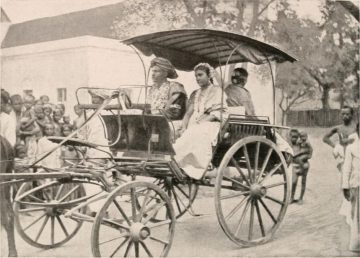 Shuvatri Dasgupta over at the blog of the Journal of the History of Ideas:
Shuvatri Dasgupta over at the blog of the Journal of the History of Ideas:
The association of the category of “global” with an intellectual history of caste is still quite an anomaly. However, recent works like Isabel Wilkerson’s widely acclaimed book Caste: The Origin of our Discontent, establish the globality of caste by associating its histories of oppression in India with the histories of racial exclusion in America. Recently, Dr. Suraj Yengde and Dr. Cornel West have collaborated to create a transnational language of resistance against the violence and atrocities understood as racism and casteism in the present day. Anupama Rao in her review of Wilkerson’s work, applauds the author’s innovative approach, but at the same time cautions us against establishing theoretical equivalence between the history of race and caste, although their manifestations of violence and exclusion might be identical. Rao in her earlier work read lower caste resistances as models for emancipatory self-fashioning, in turn arguing that these political acts remain a crucial part of the many histories of democracy in South Asia.
Whilst these works provide very productive ways for engaging with caste, I argue that a global intellectual history methodology provides an even wider set of possibilities for writing a conceptual history of caste. In this essay I will address two central questions: First, how can a history of caste benefit from the methodologies of global intellectual history? Second, how can this global concept history of caste contribute to shaping the methodological debates on global intellectual history?
More here.
